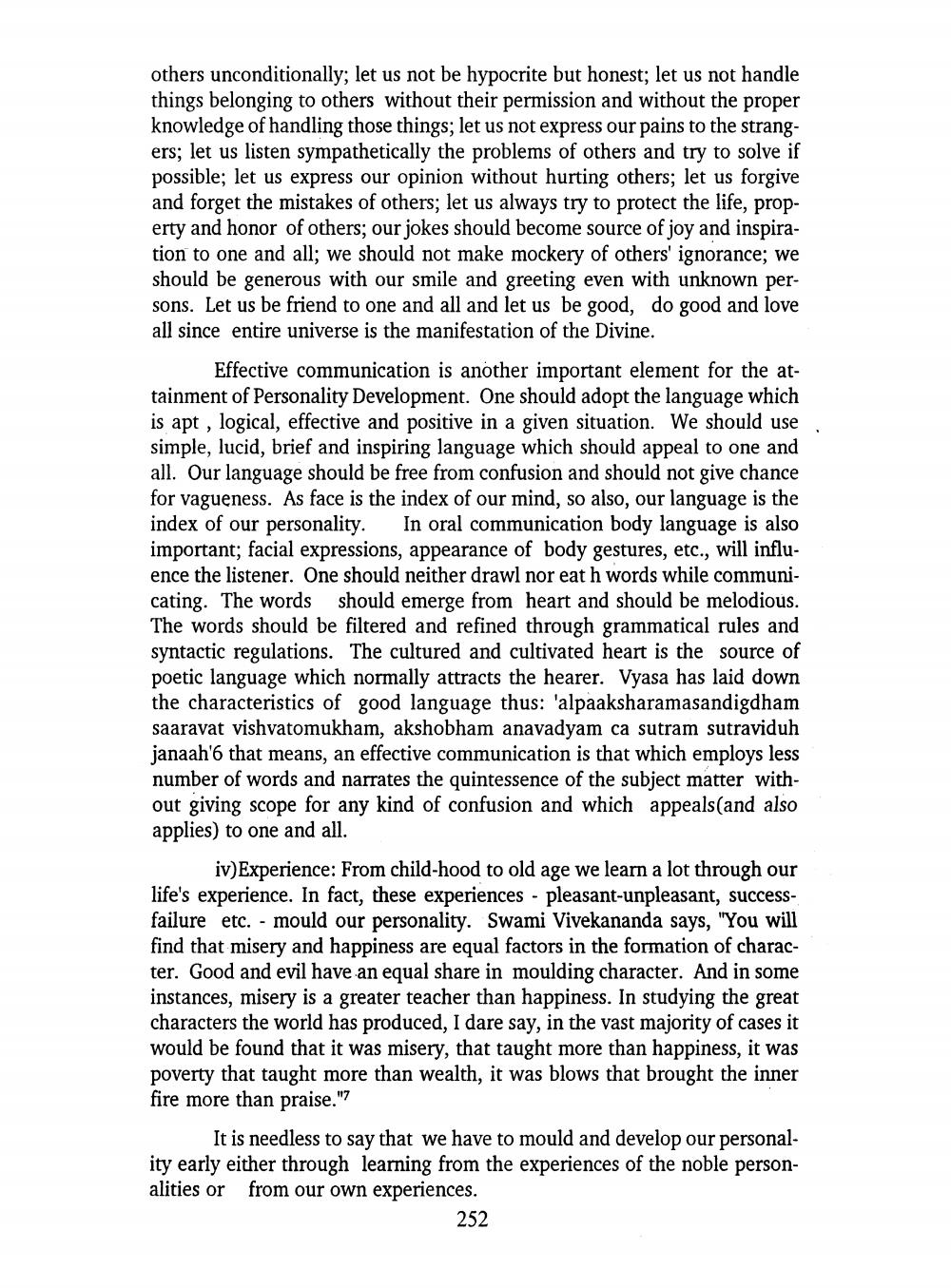________________
others unconditionally; let us not be hypocrite but honest; let us not handle things belonging to others without their permission and without the proper knowledge of handling those things; let us not express our pains to the strangers; let us listen sympathetically the problems of others and try to solve if possible; let us express our opinion without hurting others; let us forgive and forget the mistakes of others; let us always try to protect the life, property and honor of others; our jokes should become source of joy and inspiration to one and all; we should not make mockery of others' ignorance; we should be generous with our smile and greeting even with unknown persons. Let us be friend to one and all and let us be good, do good and love all since entire universe is the manifestation of the Divine.
Effective communication is another important element for the attainment of Personality Development. One should adopt the language which is apt, logical, effective and positive in a given situation. We should use simple, lucid, brief and inspiring language which should appeal to one and all. Our language should be free from confusion and should not give chance for vagueness. As face is the index of our mind, so also, our language is the index of our personality. In oral communication body language is also important; facial expressions, appearance of body gestures, etc., will influence the listener. One should neither drawl nor eat h words while communicating. The words should emerge from heart and should be melodious. The words should be filtered and refined through grammatical rules and syntactic regulations. The cultured and cultivated heart is the source of poetic language which normally attracts the hearer. Vyasa has laid down the characteristics of good language thus: 'alpaaksharamasandigdham saaravat vishvatomukham, akshobham anavadyam ca sutram sutraviduh janaah 6 that means, an effective communication is that which employs less number of words and narrates the quintessence of the subject matter without giving scope for any kind of confusion and which appeals(and also applies) to one and all.
iv)Experience: From child-hood to old age we learn a lot through our life's experience. In fact, these experiences - pleasant-unpleasant, successfailure etc. - mould our personality. Swami Vivekananda says, "You will find that misery and happiness are equal factors in the formation of character. Good and evil have an equal share in moulding character. And in some instances, misery is a greater teacher than happiness. In studying the great characters the world has produced, I dare say, in the vast majority of cases it would be found that it was misery, that taught more than happiness, it was poverty that taught more than wealth, it was blows that brought the inner fire more than praise."7
It is needless to say that we have to mould and develop our personality early either through learning from the experiences of the noble personalities or from our own experiences.
252




